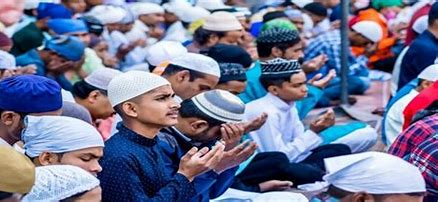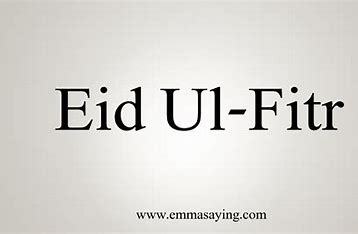
Ramadan Mubarak 2025: A Month of Blessings, Fasting, and Spiritual Growth Eid
As the Islamic calendar ushers in the sacred month of Ramadan, Muslims around the world are preparing for a time of fasting, reflection, charity, and community. Ramadan Mubarak, a phrase that means “Blessed Ramadan,” is a heartfelt greeting exchanged by Muslims as they begin their journey through this holy month. This year, Ramadan will begin on March 1, 2025, in many parts of the world, and for some, the first day of fasting will fall on March 2, 2025. The significance of Ramadan goes beyond just abstaining from food and drink; it is a time of deep spiritual renewal, self-discipline, and connection with Allah, fostering a sense of empathy, charity, and gratitude.
The Spiritual Significance of Ramadan Eid
Ramadan is the ninth month of the Islamic lunar calendar and is considered the holiest month for Muslims. It is a time for Muslims to strengthen their relationship with Allah through fasting, prayer, and increased devotion. During this month, the Quran was revealed to Prophet Muhammad (PBUH), and Muslims around the world commemorate this momentous event by dedicating themselves to the worship of Allah, engaging in the recitation of the Quran, and performing extra prayers such as Taraweeh.
Fasting, or Sawm, is one of the Five Pillars of Islam, which are the fundamental practices that shape a Muslim’s faith and actions. Ramadan serves as an opportunity for Muslims to purify their hearts and minds, strengthen their faith, and build a deeper sense of spirituality. Through fasting from dawn until sunset, Muslims not only abstain from food and drink but also from sinful behavior, bad habits, and distractions, all in an effort to attain self-discipline and mindfulness.

Fasting is also a way for Muslims to empathize with the less fortunate. By experiencing hunger and thirst, they are reminded of the struggles of those in poverty and are encouraged to show compassion through charity. This is why the month of Ramadan is closely tied to giving, whether through zakat (obligatory charity) or voluntary acts of kindness.
Fasting: A Time of Patience, Reflection, and Gratitude Ramadan Eid
One of the central components of Ramadan is fasting, a practice that holds deep spiritual and practical significance. Muslims wake up early before dawn to eat a meal called Suhoor (the pre-dawn meal), and after sunset, they break their fast with a meal known as Iftar. The fasting period lasts from dawn until sunset and is intended to be a time of reflection, spiritual growth, and self-control.
Fasting during Ramadan is not just about abstaining from food and drink; it is about refraining from all forms of indulgence, negative behavior, and sinful actions. During this month, Muslims are encouraged to avoid gossip, anger, greed, and envy. The fast helps cultivate a sense of humility, patience, and mindfulness. It is a time to reflect on one’s actions and make a conscious effort to better oneself, both in terms of spiritual devotion and in day-to-day conduct.
Additionally, fasting allows Muslims to show gratitude for the blessings they have. By abstaining from food and water during the day, Muslims gain a deeper appreciation for the sustenance they are provided and develop a sense of thankfulness for the simple, yet essential, provisions of life.
Taraweeh: A Night of Worship and Reflection Ramadan Eid
One of the most cherished traditions during Ramadan is the nightly Taraweeh prayers. These prayers are special voluntary prayers performed after the obligatory Isha prayer. The Taraweeh prayers consist of additional rak’ahs (units of prayer) and are often performed in congregation at mosques. The beauty of Taraweeh lies not only in the act of prayer but in the communal gathering of Muslims who come together to worship, seek forgiveness, and increase their devotion to Allah.
During Ramadan, many Muslims strive to complete the recitation of the entire Quran in the course of the month. This is done by having portions of the Quran recited during the Taraweeh prayers. The prayers, which can take an hour or more, are a spiritual highlight of Ramadan for those who attend them regularly. The sense of unity, peace, and devotion that fills the mosque during Taraweeh prayers is a reflection of the deep spiritual bond between Muslims during this blessed month.
Charity: The Heart of Ramadan Eid
One of the central themes of Ramadan is charity, and the month is considered a time when the rewards for good deeds are multiplied manifold. The concept of giving and helping others is at the core of Ramadan, and Muslims are encouraged to give to those in need, whether through zakat (obligatory almsgiving) or through voluntary acts of charity.
Zakat is one of the Five Pillars of Islam and is an obligatory act of giving for Muslims who meet the necessary financial threshold. It involves giving a portion of one’s wealth to those who are less fortunate. Ramadan is considered an especially blessed time to give zakat, as the rewards for acts of charity during this month are believed to be amplified. Many Muslims also engage in other forms of charity during Ramadan, such as providing food for the poor, helping orphans, and donating to causes that support education, healthcare, and relief efforts.
In addition to zakat, Ramadan also fosters the spirit of community and sharing. One of the most heartwarming traditions of Ramadan is the communal Iftar meal, where Muslims gather with family, friends, and neighbors to break their fast together. Many mosques, charitable organizations, and community centers host Iftar events, often serving meals to those who may not have the means to afford a meal or who may be alone during the month.
The Eid Connection: Celebrating the End of Ramadan Eid
As the month of Ramadan draws to a close, Muslims look forward to celebrating Eid al-Fitr, a joyous festival that marks the end of fasting. Eid al-Fitr, often referred to as the “Festival of Breaking the Fast,” is a time of celebration, gratitude, and thanksgiving to Allah for the strength and patience shown during the month of Ramadan. It is also a time to come together with family and friends, exchange gifts, and enjoy festive meals.
Before the Eid celebrations, Muslims are required to give Zakat al-Fitr, a specific form of charity intended to help those in need so that they too can partake in the celebrations. This charity is typically given before the Eid prayer and is a way of ensuring that everyone, regardless of their financial situation, can join in the joyous occasion.
The Eid prayer is a special congregational prayer offered in the morning, followed by family gatherings and community celebrations. It is a time of gratitude for the blessings of Ramadan and a chance to renew bonds with loved ones. The joy of Eid is amplified by the fact that Muslims around the world celebrate it together, united in their faith and in the shared experience of completing the fast.
Ramadan Mubarak: A Time for Renewal and Self-Improvement Eid
As we enter Ramadan 2025, the greeting “Ramadan Mubarak” echoes through Muslim communities worldwide. It is a phrase filled with warmth and goodwill, symbolizing the blessings of the month ahead. The term “Mubarak” means “blessed,” and it is a wish for a fruitful, peaceful, and spiritually enriching month for all who observe it. Ramadan is a time for Muslims to renew their commitment to Allah, strengthen their relationship with family and community, and engage in acts of worship, reflection, and self-improvement.
Ramadan is also an opportunity to reset spiritually, to clear the mind and soul of distractions, and to focus on the most important aspects of life: faith, family, and compassion for others. It is a time to seek forgiveness for past mistakes, improve one’s character, and make meaningful changes in one’s life. By fasting, praying, and giving to those in need, Muslims take significant steps toward personal and spiritual growth.

Conclusion: Ramadan Mubarak 2025
As Ramadan 2025 begins, Muslims around the world enter a period of deep reflection, devotion, and gratitude. Ramadan is not just a time for fasting; it is a time to purify the heart, strengthen relationships, and renew one’s connection with Allah. It is a month of kindness, compassion, and giving, and it provides Muslims with the opportunity to reflect on the blessings in their lives while developing a sense of empathy for those who are less fortunate.
May this Ramadan bring peace, prosperity, and spiritual growth to all Muslims, and may the blessings of this sacred month guide everyone toward a closer relationship with Allah and a more compassionate world. Ramadan Mubarak to all!







